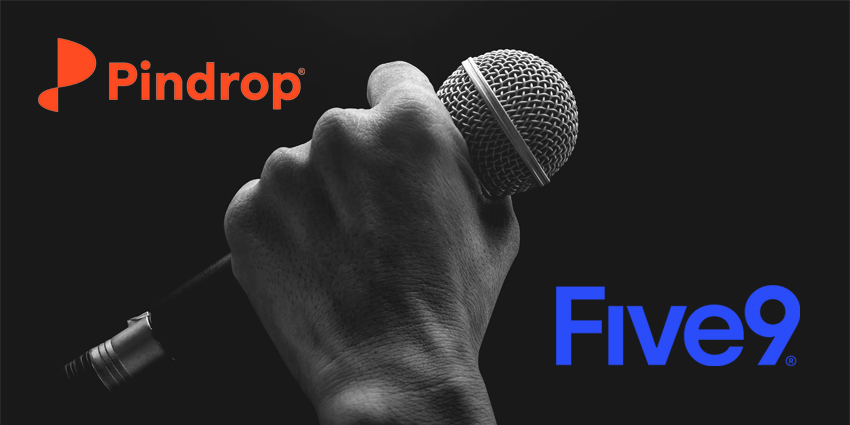Last month, Microsoft announced Teams Phone extensibility with its Dynamics 365 Contact Center.
Essentially, this allows businesses to extend the voice capability they have on Teams into the contact center.
As such, Microsoft eliminates the need for a separate phone system as existing Teams customers implement the Dynamics 365 CCaaS platform.
Yet, it’s not just Microsoft’s CCaaS platform. The tech giant is also allowing other contact center providers – which integrate with Teams – to share a single voice platform.
These providers are part of a preview program and include AudioCodes, Anywhere365, ComputerTalk, Enghouse Systems, Landis, and Luware.
By offering Teams Phone extensibility, Microsoft – via its Dynamics 365 Contact Center offering – and its partners promise several benefits.
For instance, a single telephony solution could simplify contact center deployments, cut complexity, and streamline billing.
Moreover, Teams Phone is available in multiple regions, enabling global coverage and standardizing communications across locations.
The integration also lets enterprises manage CCaaS and UCaaS from one platform, boosting efficiency, reducing management burden, and potentially creating a smoother agent experience.
Finally, Microsoft says the integration will help businesses simplify the transition from on-premise systems to cloud-based infrastructure, unlocking access to AI-powered tools.
That’s a lot of prospective plus points that contact centers can reap from the feature that’s set to enter public preview by the end of the month.
Yet, what’s the take of industry analysts? Let’s take a look.
The Move Enables CPaaS on the Back-End of CCaaS & UCaaS
In a recent edition of UC Today’s Microsoft Monthly Update, Tom Arbuthnot, Co-Founder of Empowering.Cloud, shared his take on the announcement.
Firstly, he highlighted how Teams extensibility will work on a technical level, explaining that it is supported by leveraging Azure Communication Services (ACS).
Essentially, this is Microsoft’s CPaaS offering that – under the hood – powers Microsoft Teams.
As businesses deploy Teams extensibility, this will form the back-end of both their CCaaS and UCaaS platform.
“The advantage of this setup is that it provides various shared capabilities – things like phone numbers, PSTN connectivity, Operator Connect, Direct Routing, and Calling Plans,” noted Arbuthnot.
You can configure all your PSTN services there and then seamlessly route them through to the contact center.
Another advantage outlined by Arbuthnot is the capacity for agents to interact with customers via Teams for instances such as transferring calls or switching between conversations.
As such, this tighter integration should provide a “robust set of capabilities” for contact center vendors to handle call routing, recording, and platform management.
The Move May Inspire Broader Dynamics 365 Adoption
The Dynamics 365 portfolio has traditionally been an offering for businesses heavily involved in the Microsoft stack.
Its lack of interoperability with the broader Microsoft portfolio has somewhat discouraged others from expanding from Teams into Dynamics 365.
After all, in many cases, it was just as much work to join forces with a more seasoned customer service provider.
Yet, now Finbarr Begley, Senior Research Analyst at Cavell, believes that the new extensibility with Teams Phone “opens a door” for wider adoption.
“What platform do I – as the customer – use? That’s a big question right now because of the rapid rate of change and the R&D spend from people like NICE and Amazon,” he recently told CX Today..
The fact that Microsoft is turning around and adding these capabilities, along with their AI expertise … is going to bring them back into the conversation.
In a separate conversation, Begley’s colleague, Patrick Watson, Head of Research at Cavell, shared some similar sentiments.
Watson outlined how service providers and telcos are increasingly looking at the customer experience and contact center space as an opportunity for supplementary revenue streams.
He explained how Microsoft’s new phone capabilities make Dynamics 365 a more viable option for “telcos and tier one and tier two service providers.”
Indeed, Watson stated: “In our research, at least 70 percent of telcos and service providers have a direct routing solution, and there are over 100 providers on the Operator Connect program.
Now, Dynamics 365 is going to be a much more appealing option to add to your direct routing and Operator Connect telephony businesses.
The topic of revenue was also touched on by Arbuthnot, who mentioned the potential for the integration to deliver reduced costs to customers.
Yet, while Microsoft is keen to tout these possible savings, Arbuthnot highlighted that Microsoft also benefits financially from this setup, as Azure operates on a consumption-based model.
Although the goal presented is to streamline and integrate services, there are ongoing Azure costs involved – a factor businesses will need to account for.
More News from Microsoft
Back in March, Microsoft announced that it was rebranding several of its key contact center solutions under the Copilot name, reflecting its growing focus on AI integration.
The “Customer Service workspace” and “Contact Center workspace” are now called the “Copilot Service workspace,” while the “Customer Service admin center” and “Contact Center admin center” have been renamed the “Copilot Service admin center.”
These changes highlight how Copilot is becoming central to supporting both agents and admins in their daily workflows.
Elsewhere, at the company’s AI Tour in London, Microsoft unveiled two new AI agents designed to assist sales teams within their daily workflows.
The first, called the “Sales Agent,” helps with lead research, outreach, and meeting scheduling – and can even close deals for lower-priority leads.
The second, “Sales Chat,” supports sales reps by providing quick insights and updates on customer accounts ahead of meetings.
Join the CX Community That Values Your Voice
This is your space to speak up, connect, and grow with thousands of CX leaders. Share your voice, influence what’s next, and learn from the best in customer experience. Join the conversation today.







